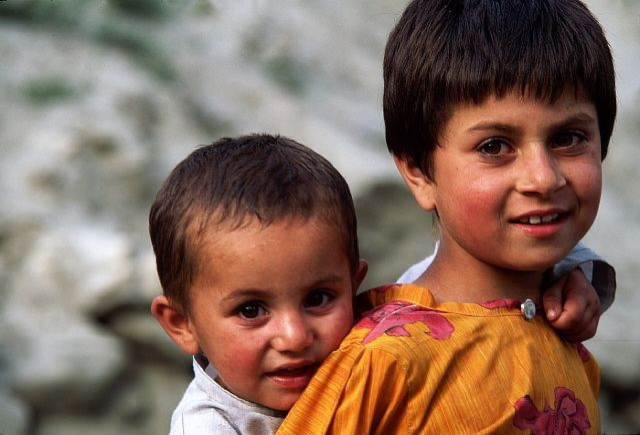Polio Remains Endemic in Nigeria, Pakistan And Afghanistan: Health Officials

Although polio has been eradicated across much of the world, the disease remains endemic in Nigeria, Pakistan, Chad and Afghanistan, according to an international group.
Moreover, according to the Global Polio Eradication Initiative (GPEI), gaps in funding and insufficient immunization programs raises the threat of polio transmission in many countries.
GPEI is affiliated with the World Health Organization (WHO).
Bruce Aylward, head of the WHO's polio eradication campaign, told BBC: Over the last 24 months on three continents -- in Europe, in Africa and in Asia -- we have seen horrific explosive outbreaks of the disease that affected adults, and in some cases 50 percent of them died.”
He added: What it reminded people is that, if eradication fails, we are going to see an huge and vicious upsurge of this disease with consequences that it is very difficult even to foresee right now.
Indeed, funding cuts of $1 billion have already led GPEI to cancel vaccine programs in two dozen high-risk nations.
GPEI warned that failure to eradicate polio could lead to as many as 200,000 paralyzed children a year across the globe.
Health ministers are meeting at the World Health Assembly this week in Geneva to consider if polio may be declared an “emergency for global public health.”
“Polio eradication is at a tipping point between success and failure,” said Dr. Margaret Chan, Director-General of WHO.
“We are in emergency mode to tip it towards success -- working faster and better, focusing on the areas where children are most vulnerable.”
In recent years, much progress has been made in wiping out this viral disease that often lead to paralysis and death.
India, once believed to have the world’s greatest number of polio cases, was removed from the list of polio-endemic nations earlier this year.
“We know polio can be eradicated, and our success in India proves it,” said Kalyan Banerjee, president of Rotary International, a global humanitarian service organization.
“It is now a question of political and societal will. Do we choose to deliver a polio-free world to future generations, or do we choose to allow 55 cases this year to turn into 200,000 children paralyzed for life, every single year? ”
GPEI estimates that once polio is completely eradicated, global savings arising from reduced health care costs would reach $50 billion by the year 2035.
“All our efforts are at risk until all children are fully immunized against polio – and that means fully funding the global eradication effort and reaching the children we have not yet reached,” said UNICEF Executive Director Anthony Lake.
“We have come so far in the battle against this crippling disease. We can now make history – or later be condemned by history for failing.”
Pakistan is a case in point.
BBC reported that almost 200 children in this country were paralyzed by the illness last year, the highest such figure in 15 years.
Orla Guerin, a BBC correspondent in Pakistan, noted that the Pakistani strain of the virus has crossed into Afghanistan and China, leading to outbreaks in those nations.
“The Pakistan government has already declared polio to be a national emergency. A small army of health workers - 88,000 - is targeting 33-million children for vaccination,” she wrote.
“But officials admit as many as three quarters of a million children still have not been immunized. The government says immunization campaigns have been disrupted in recent years by a number of factors, including heavy flooding and military campaigns against the Taliban.”
© Copyright IBTimes 2025. All rights reserved.




















